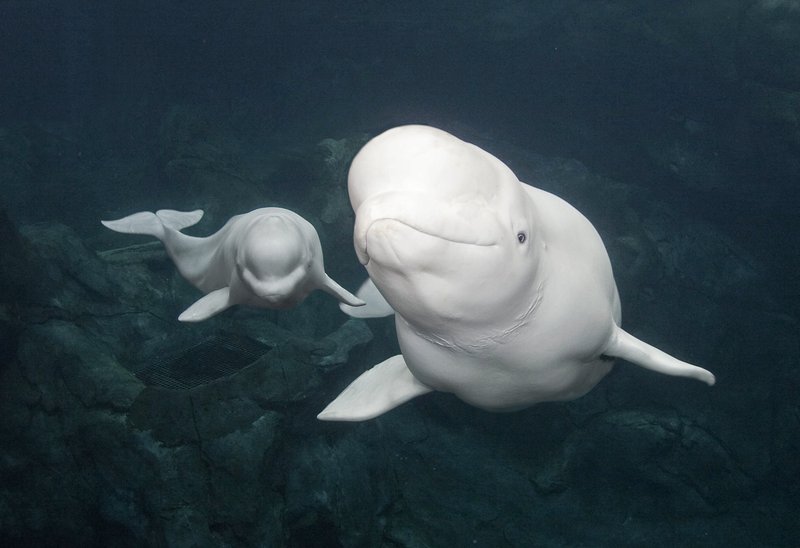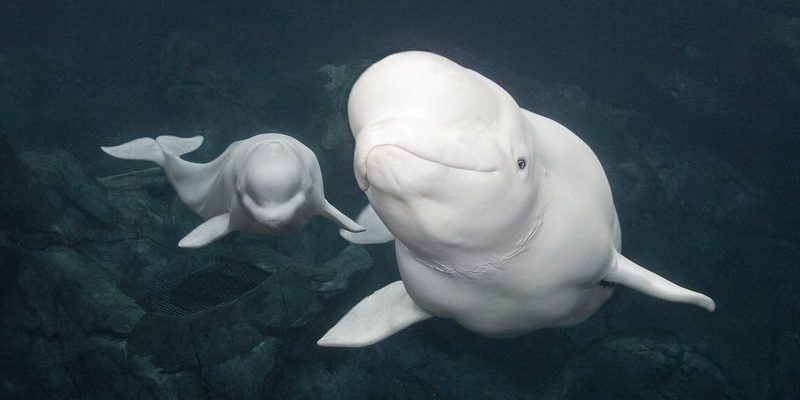
So, what exactly do beluga whales do that makes them so important? Imagine a small-town community where every member contributes to keeping things running smoothly. That’s a bit like the role belugas play in their underwater communities. They interact with their surroundings and other species in ways that can be quite profound. Let’s dive deeper into their ecosystems and see how these wonderful whales contribute to the marine world.
Understanding Beluga Whales
Beluga whales are fascinating creatures that belong to the monodontidae family, which means they have no teeth but instead have a unique set of adaptations for life in the icy Arctic waters. They can grow up to 20 feet long and weigh as much as 2,000 pounds! These whales are typically known for their striking white color, particularly as adults. However, calves start off grey before transforming into that iconic snowy hue over time.
You might be wondering where these whales hang out. Belugas primarily inhabit cold waters, primarily found in the Arctic and sub-Arctic regions. They often gather in shallow areas of the ocean or near river mouths, particularly during the summer months when they migrate to warmer waters. This adaptability to different habitats allows them to thrive in various marine environments.
Their social nature is another remarkable aspect. Belugas travel in groups called pods, usually consisting of a mix of males, females, and calves. These pods can range from a few individuals to hundreds during migration. Belugas are highly communicative and use a mix of clicks, whistles, and clangs to express themselves, leading to their nickname as the “canaries of the sea.” Their vocalizations help maintain social bonds and can also serve as a wayfinding tool in the vast ocean.
The Role of Beluga Whales in Marine Food Webs
Belugas are not just beautiful; they play a significant part in their marine food webs. As carnivores, they primarily feast on fish, squid, and crustaceans. This diet helps maintain a balance in the populations of these species. When belugas hunt, they help regulate the numbers of fish and other creatures in their ecosystems.
Let’s break this down. If belugas weren’t around, fish populations could explode, leading to overgrazing on underwater vegetation. This could disrupt the entire marine ecosystem. Think of it as a gardener ensuring that every plant in the garden has enough space to grow. By controlling fish populations, belugas ensure that the health of the ocean remains in check.
Additionally, as belugas consume prey, they also contribute to nutrient cycling. When they excrete waste, it enriches the surrounding waters, providing vital nutrients for plankton and other smaller organisms. Essentially, they act as a natural fertilizer! Healthy plankton populations, in turn, support the entire food chain, from tiny fish to larger predators.
Beluga Whales and Climate Change
Climate change poses significant challenges to belugas and their habitats. As Arctic waters warm due to rising temperatures, sea ice cover diminishes. Belugas rely on these ice-covered areas for resting, nursing their young, and hunting. Less ice means less shelter and food availability. It’s like having a cozy home that’s slowly being taken away.
With the loss of sea ice, belugas might be forced to migrate to new areas, which can impact their feeding routines and social structures. Changes in prey availability due to warmer waters can also lead to competition with other marine species, further stressing their population.
Moreover, warmer temperatures can lead to increased vessel traffic in the Arctic. This can result in accidents, noise pollution, and habitat disturbances that negatively affect belugas. The sounds of engines and other machinery can interfere with their communication, making hunting and socializing more difficult.
Beluga Whales and Human Connection
The relationship between beluga whales and humans is a fascinating one. Throughout history, Indigenous peoples of the Arctic have revered these whales, often incorporating them into cultural traditions and practices. They are seen as symbols of strength and resilience, highlighting the deep connection between nature and human life.
In modern times, sustainable tourism has emerged as a way for people to appreciate these incredible animals while ensuring their protection. Whale watching has become popular, contributing to local economies and raising awareness about the importance of protecting marine ecosystems. However, it’s essential to approach these activities responsibly, ensuring that they don’t disrupt the belugas’ natural behaviors.
On the flip side, belugas are also vulnerable to human activities like pollution and industrial development. Oil spills and plastic waste can lead to health problems for belugas, just as they can for other marine life. Protecting their habitats is crucial not only for their survival but also for the health of the ocean as a whole.
Conservation Efforts for Beluga Whales
With the various threats facing belugas, concerted conservation efforts are essential to ensuring their survival. Organizations are working tirelessly to monitor beluga populations, research their behaviors, and develop policies to protect their habitats. These efforts include establishing marine protected areas where human activities are limited, allowing belugas to thrive in safer environments.
Additionally, collaboration between scientists, Indigenous communities, and local stakeholders is vital. By blending traditional knowledge with modern science, we can develop more effective conservation strategies. It’s all about working together for a common goal—the well-being of our ocean inhabitants.
Education also plays a significant role in conservation. By raising awareness about the challenges belugas face and the importance of marine ecosystems, we can inspire actions that contribute to their protection. Every little bit counts, whether it’s reducing plastic use, supporting sustainable seafood choices, or advocating for environmental policies.
The Future of Beluga Whales in Marine Ecosystems
As we look to the future, the role of beluga whales in marine ecosystems remains as critical as ever. The balance of their habitats depends on various factors, and we all have a part to play in ensuring that they continue to thrive. By understanding their importance and joining efforts to protect them, we can help maintain healthy oceans.
Honestly, beluga whales are more than just captivating creatures—they’re vital members of the marine community. They remind us of the interconnectedness of life and the impact our actions can have on the environment. Just like in our communities, every species contributes to a greater whole, and it’s up to us to keep that balance intact.
So, whether you’re fascinated by marine life or just someone who enjoys a good story about nature, the beluga whale is a perfect example of how even the largest creatures face challenges. Their role in marine ecosystems is a beautiful reminder of our responsibility to protect the world around us. Let’s keep swimming forward together for their future!

